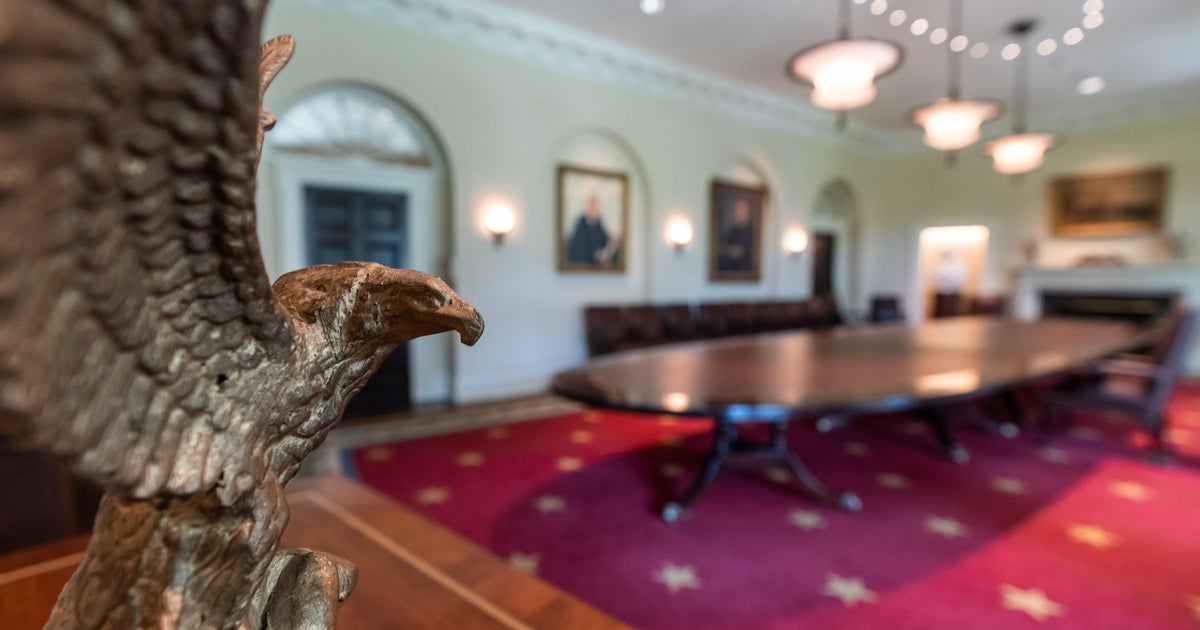Ecuador's leader says Julian Assange turned London embassy into a "center of spying"
The government of Ecuador has continued taking jabs at WikiLeaks founder Julian Assange after effectively evicting him from its London embassy and allowing for his arrest. Ecuadorian officials, including the nation's president, have accused him of everything from crude behavior and poor pet ownership to turning their property into a "center for spying."
A lawyer for the Australian hacker, who remains jailed in London pending a ruling on possible extradition to the U.S., has accused Ecuador of hurling "outrageous allegations" to distract from their "unlawful" abandonment of her client.
Why was Julian Assange arrested?
In an interview published by The Guardian newspaper, Ecuadorean President Lenin Moreno rejected claims that he had allowed for Assange's arrest as a reprisal for WikiLeaks purportedly leaking documents that sullied his name, including claims of secret bank accounts and hidden wealth.
Moreno insisted it was Assange's actions against other democratic countries, taken while he lived in Ecuador's embassy for seven years, that had led to the eviction.
"Any attempt to destabilize is a reprehensible act for Ecuador, because we are a sovereign nation and respectful of the politics of each country," Moreno told The Guardian. "We cannot allow our house, the house that opened its doors, to become a center for spying."
On Sunday, however, a lawyer representing Assange alleged that Ecuador's government was spreading lies about his behavior.
Ecuadorian officials have claimed that Assange's actions deteriorated before his arrest on Thursday, and included putting excrement on walls, leaving soiled laundry in the bathroom, and not properly looking after his cat.
Spanish newspaper El Pais published an inside account of the WikiLeaks boss' time in the embassy on Sunday, citing a Spanish firm hired in by the Ecuadorians to provide security. The newspaper posted video from security cameras inside the embassy building which show Assange trying to pass time by learning how to ride a skateboard, but also moments of apparent tension with security staff.
In one part of the video, El Pais says Assange can be seen arguing with embassy staff who tried to prevent him holding a meeting with associates in the rooms to which he was confined, former security guards told the newspaper.
Assange is now being held in custody at Belmarsh Prison in southeast London, awaiting sentencing in Britain for skipping bail to avoid being sent to Sweden as part of an investigation of a rape allegation. Sweden is considering reviving the investigation.
The United States also is seeking his extradition after charging him with conspiring to break into a Pentagon computer system, which could lead to competing extradition demands. The U.S. charge carries a possible five-year prison sentence.
"Outrageous allegations?"
Lawyer Jennifer Robinson told British TV network Sky News the Ecuadorian government was spreading alleged falsehoods to divert attention from its decision to revoke his asylum and allow his arrest at its British embassy,
"I think the first thing to say is Ecuador has been making some pretty outrageous allegations over the past few days to justify what was an unlawful and extraordinary act in allowing British police to come inside an embassy," Robinson said.
Ecuador's Moreno ended Assange's protected status after more than 6½ years and opened the way for his arrest. Moreno gas said Assange abused Ecuador's goodwill, mistreated embassy staff and used his perch to try to interfere in other country's political affairs.
Assange has had "a very difficult time" since Moreno took office in Ecuador in 2017, Robinson said.
What happens next?
U.K. Home Secretary Sajid Javid would be expected to have the final say in which extradition claim takes priority, if Sweden does file a new one. More than 70 British legislators have urged Javid to give priority to a case involving rape allegations ahead of the U.S. request.
He would not be expected to enter a plea to the Department of Justice case unless he loses his extradition case and is brought to a courtroom in the United States.
Assange, who appeared much older when he emerged from the embassy than when he sought refuge there in August 2012, has denied the Swedish rape allegation, asserting the sex was consensual.
He has not formally responded to the U.S. conspiracy charge. His indictment was made public hours after his Thursday arrest, but Assange's lawyers say he is a legitimate journalist whose prosecution would have a chilling effect.
The extradition court in Britain will not be judging the evidence against him, but will evaluate whether the crime he is accused of would be a crime in Britain.
Assange's next court appearance is scheduled for May 2. In the meantime, he is expected to seek prison medical care for severe shoulder pain and dental problems, WikiLeaks has said.




